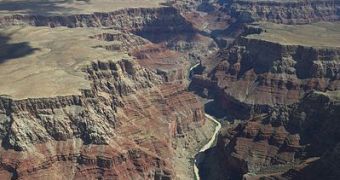More than 90,000 people from the US want trash, in the form of thousands of plastic bottles, to disappear from the Grand Canyon National Park. As a result, they have decided to gather more signatures to make sure a beautiful reserve won't be tainted by the drinking habits of millions of tourists.
Therefore, an outstanding number of citizens have declared themselves in favor of a bottle ban, aiming to keep visitors away from all the plastic bottles they then use and toss without any remorse in the middle of nature, Earth911 reports.
At this point in time, such an initiative could be rather difficult to implement, since major companies that offer their products to a large segment of visitors might fight it, fearing their sale numbers would be compromised, once the interdiction is applied.
Cola Cola is one of the beverage companies directly interested to change this path, and influence the current position of Grand Canyon National Park authorities.
As a matter of fact, the popular brand has already been highly criticized for using its role as one of the most generous financial supporters of the park in its own interest, to make sure its Dasani water will continue to quench tourists' thirst.
Stephen P. Martin is the eco-conscious official who came up with the bottle ban plan. He notes that bottles represent the “single biggest source of trash” one could spot all across the national park.
Martin has struggled to adopt this eco-friendly strategy since the beginning of this year, but unfortunately without any noticeable results, since Jon Jarvis, NPS Director, got an extension for the ban, just two weeks before it was supposed to become effective.
Jarvis managed to present a plausible justification for his actions, meant to offer him an extended deadline to “get more information,” according to David Barna, NPS spokesperson. It seems that deciding in favor of the environment can be a rather time-consuming task.
“Reducing and eliminating disposable plastic bottles is one element of our green plan. This is a process, and we are at the beginning of it,” added Barna.
While authorities from Grand Canyon National Park can't seem to be able to deal with plastic bottles on their own, this is definitely not an issue for a similar facility, Zion National Park, from Utah.
An expected bottle ban launched in 2008 proved its efficiency a year later. In 2009, this preservation measure won an environmental award for making 60,000 plastic bottles vanish into thin air.

 14 DAY TRIAL //
14 DAY TRIAL //